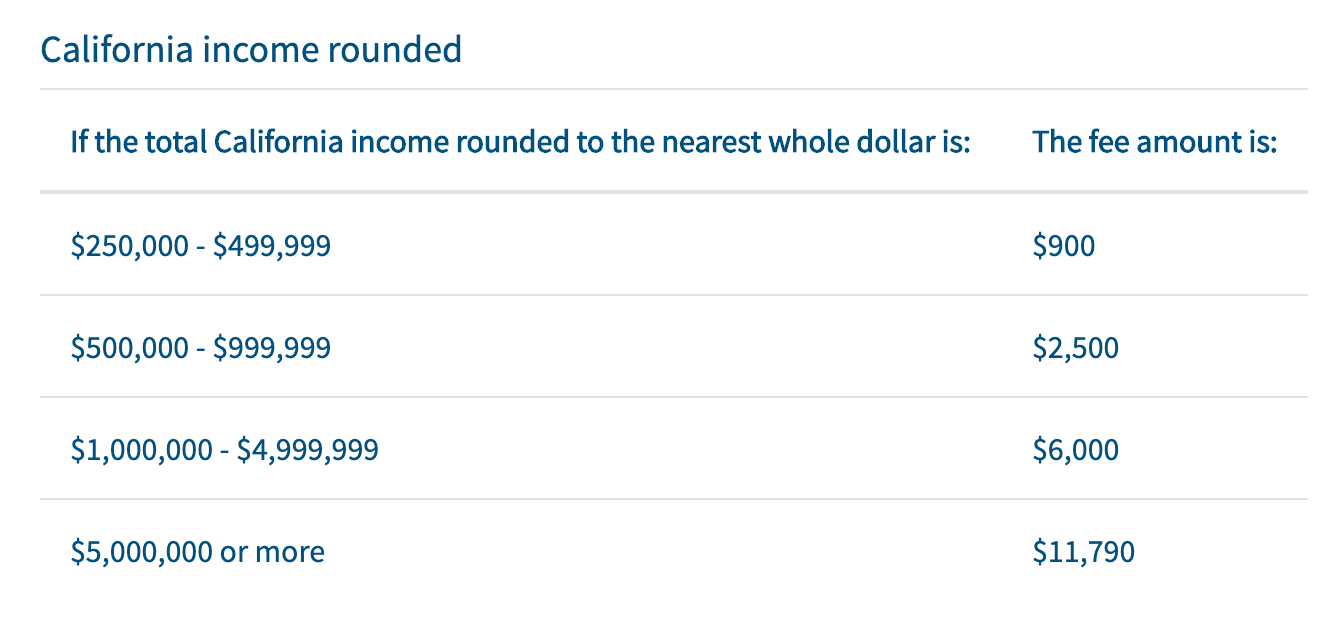Read our comprehensive guide on how to start an LLC, including defining the differences between a sole proprietorship and an LLC as well as a thorough list of pros and cons, state and federal filing fees, and the different types of LLCs.
If you’re debating whether or not to turn your sole proprietorship into a limited liability company (LLC), you likely have more than a few questions. When tasked with establishing my LLC, I’ll admit that my mind was spinning with so many questions: when is the right time, where do I start, how much does it cost, what does it mean for my business, and the list goes on.
As a small business owner, it can be extremely overwhelming figuring out the state laws, yearly costs, and overall risks and benefits of establishing an LLC. But with any successful business growth comes greater responsibility and a different employment tax.
To ensure that you are taking the necessary steps to pay taxes accordingly, I will teach you how to start an LLC.
What is the AB5 freelancer law? And what does it have to with starting an LLC?
On January 1, 2020, under California’s state labor laws, media outlets are required to publish no more than 35 pieces of content (blog posts, long-form content, articles) from their individual freelance writers (residing in California) unless they are classified as a part-time or full-time employee.
After Vox Media announced a huge reorganization of their company strategy by letting hundreds of freelancers go, many freelancers came to bat to fight for their right to freedom of speech. As reported in the Los Angeles Times, “The Pacific Legal Foundation argues that putting a cap on the number of stories a journalist can write for a single publication is unfair since similar restrictions aren’t placed on other industries, such as graphic design.” So, what does that mean for you as a freelancer?
More and more California independent contract writers/journalists are finding new strategies to work now that the AB5 freelancer law is in effect. One of these strategies is setting up a limited liability company (aka an LLC).
What are the benefits of setting up an LLC?
Setting up an LLC allows freelancers to maintain their independent status, while not losing the amount of work they can accept. The U.S. Census Bureau data shows that the total number of business applications reached an all-time high of nearly 900,000 in the last quarter of 2019, with California contributing in large part to the increase.

Data from the U.S. Census Bureau also shows the number of LLC registrations in California increased 5.7% from 2018 to 2019.
With such a large spike in new applications, it might be time for you to consider submitting your application to form a business entity and change your sole proprietorship to an LLC. How, you might ask? Continue reading on!
What are the differences between a sole-proprietorship and an LLC?
Let’s start with the basics. What is the main difference between a sole proprietorship and a limited liability company?
When you are a sole proprietorship, there’s no distinction between your business and personal funds. Having a sole proprietorship is essentially the first step to creating a business, with minimal taxes and little effort needed for setup.
When you have an LLC, you have your own distinct business entity that separates your business from personal funds and includes broader protections, as well as responsibilities, in the process.
3 key things to know about an LLC:
- As an LLC, individuals are required to separate their funds between business and personal. This will require you to set up a separate bank account; therefore, your business funds are not mixed with your personal assets.
- An LLC provides more protection as a business entity. If a client were to sue you as a sole proprietor, for example, they can sue you and go after your personal assets (home, car, etc.); however, if you are an LLC, your personal assets are protected since a client would only be able to sue based on your business assets.
- An LLC provides more protection, but with more protection means more costs. Based on which state you are in, an LLC requires you to pay an annual tax that is a lot pricier than a sole proprietorship. If you’re convinced that you would like to turn your sole proprietorship into an LLC, it is also important to understand the different types.
What are all the different types of LLCs?
There are various state regulations that apply to the different LLC structures available.
Types of LLCs:
- Single-member or multi-member: Similar to the title, this option means one or more individuals exist in your LLC. The owner of an LLC is a member, and you have the option of including multiple members. A single-member LLC is very similar to a sole proprietorship. When an LLC consists of multiple members, then that means each member is responsible for transactions, debts, and taxes from the business. They will also share profits and losses.
- Domestic or foreign: A foreign LLC is one that is formed in one state that does not do business in another. When you have a foreign LLC, you are subject to both states’ laws; however, you may benefit from some of the tax laws depending on your state of formation.
- Member-managed of manager-managed: This one is a little bit of a tongue twister! If you are considering a member-managed LLC, then the question is whether or not you would like all members to have equal control of the company’s business. If the LLC is formed with only one person, yourself, or a small number of members, then you might consider being a member-managed LLC. If the LLC has multiple individuals that are making business decisions, and some that are not actively contributing, then you might consider a manager-managed LLC.
- Professional LLC or not: There are different types of services that qualify as a professional limited liability company (PLLC). Some of these services include attorneys, physicians, certified public accountants, veterinarians, architects, life insurance agents, chiropractors, and similarly licensed businesses. The major difference between professional LLCs and normal LLCs is that the “only persons licensed to practice the profession may be members of a professional limited liability company.”
How much does it cost to start an LLC?
Prices vary per state for an LLC filing fee. See a full chart of state fees on IncFile.
Costs to start an LLC:
- In California, forming an LLC and filing Articles of Organization with the California Secretary of State costs a $75 fee.

- Additionally, LLCs formed in California are required to pay an $800 franchise tax, which is definitely on the high end.
- Within 90 days of filing your LLC for Articles of Organization, you must also file a Statement of Information, which costs a $20 fee.
- The franchise tax needs to be paid annually, so remember to budget out the $800, so you don’t receive a penalty fee.
- If your LLC is making equal to or greater than $250,000 you will be required to pay an additional fee. The amount of this fee varies depending upon the amount of income.

When and why should you consider going from a sole proprietorship to an LLC?
Now that you have a grasp on the types of LLC options that are available and the different costs, and know the basics of how to start an LLC, when is it time to convert from sole proprietorship to an LLC?
If the AB5 freelancer law (which applies to permanent residents of California only) is prohibiting you from taking on more work, then applying for an LLC is a great next step for you.
The best benefit of an LLC over a sole proprietorship is that the LLC can shelter you from liability. Let’s say in the worst-case scenario, you are sued, then the potential plaintiff could only sue the LLC and not you personally. Therefore, if the plaintiff wins the lawsuit, they would receive assets of the LLC and not your personal assets.
If you are a single-member LLC, which is the closest resemblance of a sole proprietorship, your profits and losses are part of your individual tax return. Unlike a sole proprietorship, an LLC allows you to have multiple members who share the business assets.
Remember, there are affiliated costs when creating an LLC, but ultimately, it helps you protect your personal assets while allowing you to continue saying, “YES” to more writing projects and contract work.
The pros of starting an LLC:
- Low lift, big reward: The process of starting an LLC and maintaining it is pretty straight-forward. Although there are variations in state fees and taxes, which are higher than a sole proprietorship, you receive greater protection of your personal assets.
- Slightly more flexibility than a corporation: Even though an LLC must file articles of organization with the state, it still presents more flexibility than a corporation. According to the editors at AllBusiness, “The flexibility evolves from the phrase ‘unless otherwise provided for in the operating agreement.’ This allows business owners to create a structure tailored to the business owner’s requirements.” In your own LLC, you can choose to have it managed by its members, or by managers.
- Protection of your personal assets: The LLC, as listed in the title, offers protection to the owner and any members or shareholders from liability. This means members of the LLC’s personal assets — homes, cars, bank accounts, investments — are protected from individuals who sue the business. This protection will remain if your LLC is still running and you are diligent with keeping your personal and business finances separate.
- Tax options: As an LLC, you have multiple options on how you would like to be taxed. You can be taxed as a sole proprietorship, partnership, S Corporation, or C Corporation. An LLC is a pass-through entity where profits go directly to its member(s) without being taxed by the government on the company level.
- Fewer compliance issues: In most states, an LLC doesn’t need to have an annual meeting, and the LLC isn’t required to have a board of directors. Plus, there’s less paperwork and record keeping required compared to a corporation.
- Perpetual existence: Like a corporation, an LLC has a life of its own and can continue to exist after the owners sell their shares or die.
The cons of starting an LLC:
- Pass-through taxes: Since an LLC is similar to a sole proprietorship, all profits and losses that are reported for the owner or members of the LLC will reflect on their individual tax return, whether or not they receive dividends. With the pass-through taxation, it’s usually easier for an LLC to be suited to one individual, especially if members or shareholders do not want to be a part of the pass-through taxation.
- More money going into taxes: As listed previously, an LLC comes with more fees! In addition to the franchise tax, Articles of Organization fee, new bank account fees, and more, “if your LLC is taxed as a partnership, the government considers members who work for the business to be self-employed. This means those members are personally responsible for paying Social Security and Medicare taxes, which are collectively known as self-employment tax and based on the business’s total net earnings” (Source: NerdWallet).
- Less structure: If your LLC has multiple members, it is important to have a detailed operating agreement in place; therefore, there is a business structure that is set in place. Often times LLCs will not have this document, and if a member leaves the company (dies, retires, or goes bankrupt), then all remaining members will be responsible for legal and financial obligations needed to terminate the business. So, make sure that you have the right documents in place.
- Limitations: If your LLC is taken to court, a judge can rule that your LLC structure doesn’t protect your personal assets. This action is called “piercing the corporate veil,” and you can be at risk for it if you don’t clearly separate business transactions from your personal expenses, or if you’ve been found to have run the business fraudulently in ways that resulted in losses for others.
Now that you know how to start an LLC, you can grow your business further!
Although daunting, creating an LLC is such a rewarding part of growing your business. It affirms that you are taking the necessary steps to improve your business, pay your taxes, and protect your assets. With the information provided in this article on how to start an LLC, you can jump-start your application process from sole proprietorship to LLC.
Remember that it is a process and there is a lot of information and accountability when it comes to paying taxes; however, it also provides a great opportunity to continue building your business, growing your client base and taking on additional projects.
Disclaimer: This article is meant as a guide for informational purposes only. It does not constitute a solicitation or provision of legal or financial advice, nor does it establish a client-attorney relationship. Please consult a professional in making any decisions for your business or finances.







